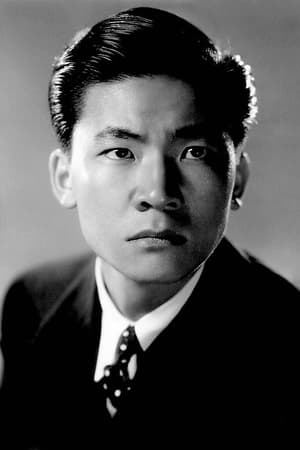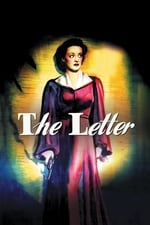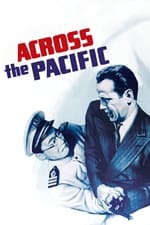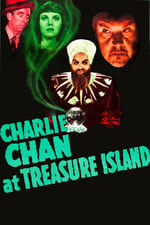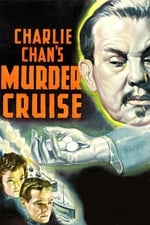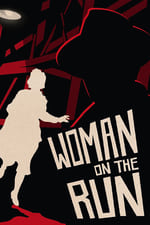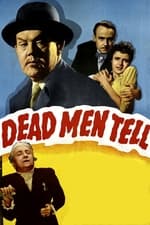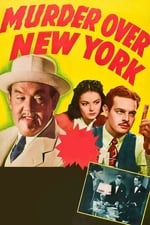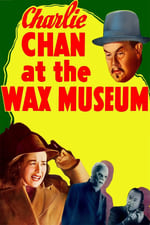Información personal
Conocido por Interpretación
Créditos conocidos 135
Sexo Masculino
Fecha de nacimiento 18 de octubre de 1915
Fecha de defunción 1 de noviembre de 1980 (65 años)
Lugar de nacimiento San Francisco, California, USA
También conocido como
- Victor Cheung Young
- Sen Yew Cheung
- Sen Yung
- Sen Young
- Victor Sen Young
- Victor Young
Puntuación del contenido
100
¡Sí! ¡Buena pinta!
Iniciar sesión para informar de un problema
Biografía
Victor Sen Young (born Victor Cheung Young or Sen Yew Cheung; October 18, 1915 – body discovered November 9, 1980) was an American character actor, best known for playing Jimmy Chan in the Charlie Chan films and Hop Sing in the Western series Bonanza. He was born in San Francisco, California to Gum Yung Sen and his first wife, both immigrants from China.
His mother died during the flu epidemic of 1919. His father placed Victor and his younger sister, Rosemary, in a children's shelter, and returned to his homeland to seek another wife. He returned in 1922 with his new wife, Lovi Shee, forming a household with his two children.
Sen Yung made his first significant acting debut in the 1938 film Charlie Chan in Honolulu, as the Chinese detective's "number two son", Jimmy Chan. Sen Yung played Jimmy Chan in 11 Charlie Chan films between 1938 and 1942. Moonlighting from the popular Chan series, Sen Yung won critical acclaim playing the nuanced role of Ong Chi Seng, a young attorney assisting Howard Joyce, in defending Leslie Crosbie, in The Letter. Like other Chinese-American actors, he was cast in Japanese parts during World War II, like his role as the treacherous Japanese-American Joe Totsuiko in the 1942 Humphrey Bogart film Across the Pacific.
During World War II he joined the U.S. Army Air Forces just as his erstwhile co-star Sidney Toler was set to revive the dormant Charlie Chan series at Monogram Pictures. Sen Yung's military obligations forced him to decline rejoining the series immediately, but Monogram gave him a standing invitation to work there after his tour of duty. Sen Yung's military service included work in training films at the First Motion Picture Unit and a role in the Army Air Forces' play and film Winged Victory.
In 1946 Sen Yung resumed his Hollywood career at Monogram, now billed as Victor Sen Young, and reunited with Sidney Toler. Toler's health was failing; Monogram was conserving Toler's waning energy, limiting his scenes and giving him long rest periods during filming. To relieve the burden on Toler, Monogram entrusted much of the action to Victor Sen Young; he and either Mantan Moreland or Willie Best shared much of the footage in Toler's final three films, Dangerous Money, Shadows Over Chinatown, and The Trap. The addition of Moreland as Chan's black chauffeur, Birmingham Brown, reflected the fact that by this time the Chan pictures had a significant following among black Americans, who liked a film series that for once did not feature a white hero. Moreland's popularity in the Chan pictures was so great that he was booked for a nationwide vaudeville tour.
Following Toler's death in 1947, Victor Sen Young appeared in five of the remaining six Charlie Chan features. His character "Jimmy" was renamed "Tommy".
Victor Sen Young continued to work in motion pictures and television in roles ranging from featured players (affable or earnest Asian characters) to bit roles (clerks, houseboys, waiters, etc.).
Arguably even more than for his work in the Charlie Chan films, Victor Sen Yung is remembered as "Hop Sing," the irascible cook and general factotum on the iconic television series Bonanza, appearing in 107 episodes between 1959 and 1973.
Sen Yung was also an accomplished and talented chef. He frequently appeared on cooking programs and authored The Great Wok Cookbook in 1974.
Victor Sen Young (born Victor Cheung Young or Sen Yew Cheung; October 18, 1915 – body discovered November 9, 1980) was an American character actor, best known for playing Jimmy Chan in the Charlie Chan films and Hop Sing in the Western series Bonanza. He was born in San Francisco, California to Gum Yung Sen and his first wife, both immigrants from China.
His mother died during the flu epidemic of 1919. His father placed Victor and his younger sister, Rosemary, in a children's shelter, and returned to his homeland to seek another wife. He returned in 1922 with his new wife, Lovi Shee, forming a household with his two children.
Sen Yung made his first significant acting debut in the 1938 film Charlie Chan in Honolulu, as the Chinese detective's "number two son", Jimmy Chan. Sen Yung played Jimmy Chan in 11 Charlie Chan films between 1938 and 1942. Moonlighting from the popular Chan series, Sen Yung won critical acclaim playing the nuanced role of Ong Chi Seng, a young attorney assisting Howard Joyce, in defending Leslie Crosbie, in The Letter. Like other Chinese-American actors, he was cast in Japanese parts during World War II, like his role as the treacherous Japanese-American Joe Totsuiko in the 1942 Humphrey Bogart film Across the Pacific.
During World War II he joined the U.S. Army Air Forces just as his erstwhile co-star Sidney Toler was set to revive the dormant Charlie Chan series at Monogram Pictures. Sen Yung's military obligations forced him to decline rejoining the series immediately, but Monogram gave him a standing invitation to work there after his tour of duty. Sen Yung's military service included work in training films at the First Motion Picture Unit and a role in the Army Air Forces' play and film Winged Victory.
In 1946 Sen Yung resumed his Hollywood career at Monogram, now billed as Victor Sen Young, and reunited with Sidney Toler. Toler's health was failing; Monogram was conserving Toler's waning energy, limiting his scenes and giving him long rest periods during filming. To relieve the burden on Toler, Monogram entrusted much of the action to Victor Sen Young; he and either Mantan Moreland or Willie Best shared much of the footage in Toler's final three films, Dangerous Money, Shadows Over Chinatown, and The Trap. The addition of Moreland as Chan's black chauffeur, Birmingham Brown, reflected the fact that by this time the Chan pictures had a significant following among black Americans, who liked a film series that for once did not feature a white hero. Moreland's popularity in the Chan pictures was so great that he was booked for a nationwide vaudeville tour.
Following Toler's death in 1947, Victor Sen Young appeared in five of the remaining six Charlie Chan features. His character "Jimmy" was renamed "Tommy".
Victor Sen Young continued to work in motion pictures and television in roles ranging from featured players (affable or earnest Asian characters) to bit roles (clerks, houseboys, waiters, etc.).
Arguably even more than for his work in the Charlie Chan films, Victor Sen Yung is remembered as "Hop Sing," the irascible cook and general factotum on the iconic television series Bonanza, appearing in 107 episodes between 1959 and 1973.
Sen Yung was also an accomplished and talented chef. He frequently appeared on cooking programs and authored The Great Wok Cookbook in 1974.
Interpretación
|
||||||||||||||||||||||||
|
||||||||||||||||||||||||
|
||||||||||||||||||||||||
|
||||||||||||||||||||||||
|
||||||||||||||||||||||||
|
||||||||||||||||||||||||
|
||||||||||||||||||||||||
|
||||||||||||||||||||||||
|
||||||||||||||||||||||||
|
||||||||||||||||||||||||
|
||||||||||||||||||||||||
|
||||||||||||||||||||||||
|
||||||||||||||||||||||||
|
||||||||||||||||||||||||
|
||||||||||||||||||||||||
|
||||||||||||||||||||||||
|
||||||||||||||||||||||||
|
||||||||||||||||||||||||
|
||||||||||||||||||||||||
|
||||||||||||||||||||||||
|
||||||||||||||||||||||||
|
||||||||||||||||||||||||
|
||||||||||||||||||||||||
|
||||||||||||||||||||||||
|
||||||||||||||||||||||||
|
||||||||||||||||||||||||
|
||||||||||||||||||||||||
|
||||||||||||||||||||||||
|
||||||||||||||||||||||||
|
||||||||||||||||||||||||
|
||||||||||||||||||||||||
|
||||||||||||||||||||||||
|
||||||||||||||||||||||||
|
||||||||||||||||||||||||
|
||||||||||||||||||||||||
|
